A Concierge for Laboratory Equipment
Program-Specific Assistant Professor, iCeMS Analysis Center
Takayuki Homma
Prerequisites for cutting-edge research include not only excellent and original ideas, but also the latest laboratory equipment and technology. Founded in 2017, the iCeMS Analysis Center houses a selection of such equipment. The shared use of expensive equipment and other resources helps reduce the financial and technical burdens of individual laboratories and facilitates the daily maintenance and management of the facilities and equipment—an often overlooked but indispensable component of laboratory operations. Dr. Takayuki Homma is responsible for this behind-the-scenes work at iCeMS. He also provides experiment design consultation and other support services to researchers.
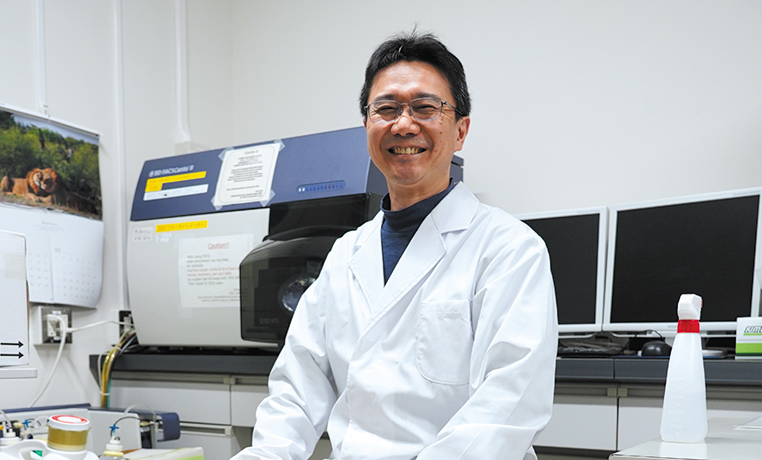
What I Do
1. Managing the equipment
Specialists in the Analysis Center manage all the equipment and make it available to researchers inside and outside iCeMS.
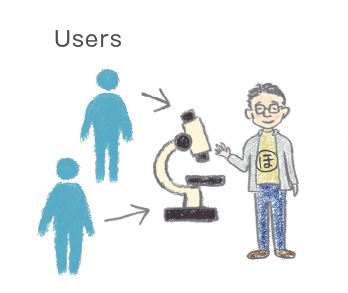
2. Providing consultation on lab equipment
I suggest the most suitable equipment and methods for the researcher’s needs, and sometimes also connect them to other researchers who are more familiar with the matter.
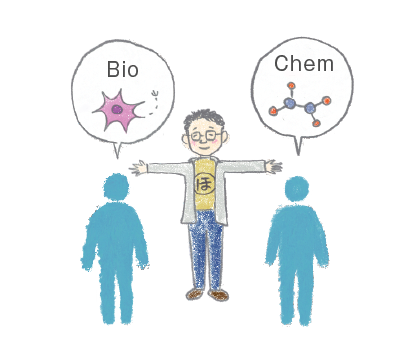
3. Responding to problems
Since it is human beings who handle the equipment, malfunctions and troubles are inevitable. To avoid stopping the experiment, we will fly to the site as soon as we hear of problems.
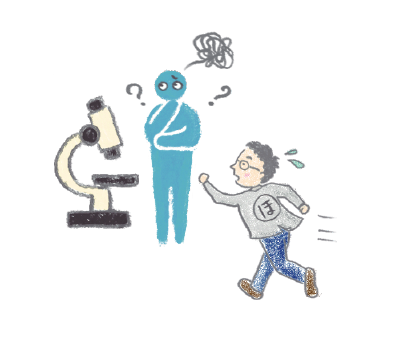
4. Creating a system for shared use
Shared use of equipment has started nationwide. We are exchanging information with people inside and outside Kyoto University, and creating a new system including fees and regulations.
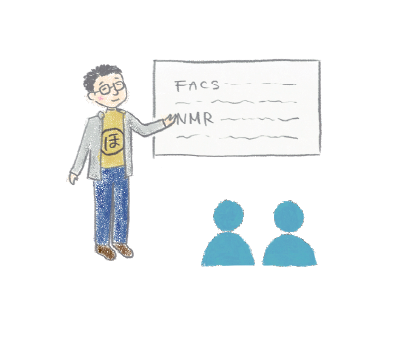
As a member of the Analysis Center working as a team, I’m also involved in:
- Management of the reservation system
- Calculation of user fees, acquisition of external funding, and management of budget
- Safety training for researchers who are new to our shared laboratories and equipment
- Consultation on equipment in new and closing laboratories
Serving as the “Laboratory Concierge”
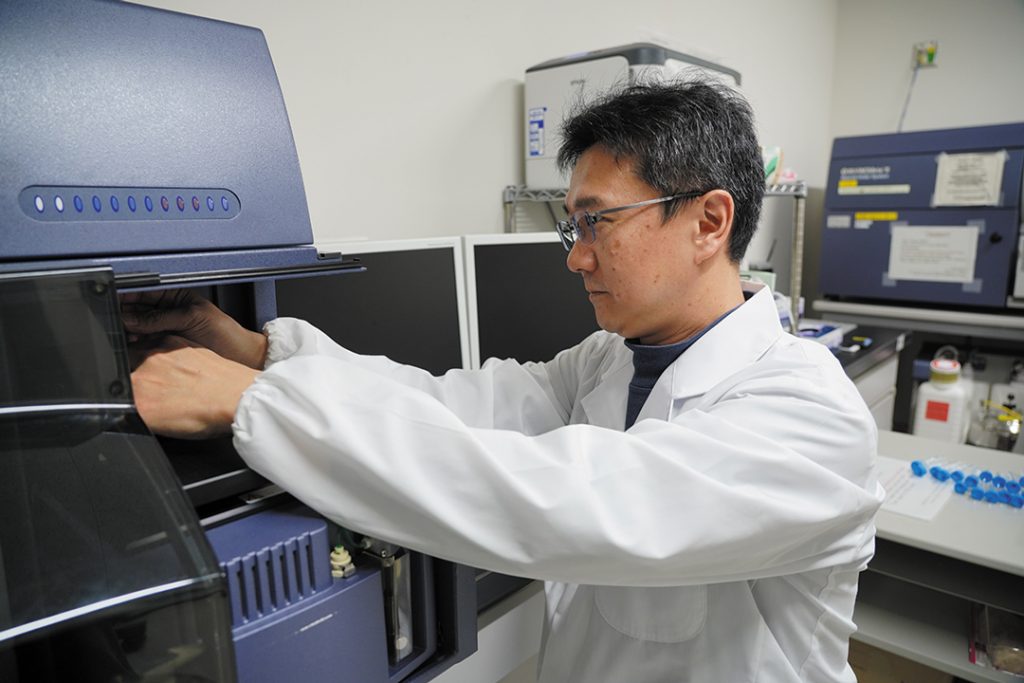
I consider myself to be the “laboratory concierge.” iCeMS is packed with instruments for use in materials science and cell biology experiments. Recently, a growing number of scientists have become involved in interdisciplinary research, and they often conduct experiments using techniques that they are not familiar with.
When a scientist uses an experimental instrument for the first time, they require technical support. This is the role of the concierge, who assists in the selection and use of the instruments and other considerations of the researchers. In a given situation, a researcher may think, “I will use this device to do such and such experiment,” but a different device may serve the purpose better. It is very rewarding when researchers tell me that my advice and support led to the success of their experiments.
Postdoctoral Days and the Joy of Supporting Colleagues
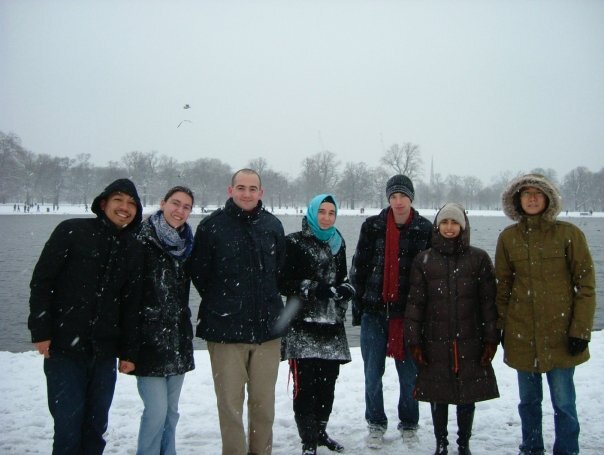
At the iCeMS Analysis Center, the Bioanalysis and Materials Analysis Units assume responsibility for the equipment. I am equally capable of addressing issues in either field as the first contact person when a researcher has any problems related to their experiments.
I am a molecular cellular biologist by education in chemistry. After receiving a PhD in science from Kyoto University, I worked at several national research organizations. Then, I spent eight years as a postdoctoral researcher at the Department of Bioengineering and other departments at Imperial College London, UK. My experiences at ICL charted the course for my later career choices. The laboratory that I belonged to was focused on biology, but other laboratories in the departments were mostly engineering oriented. In my laboratory, I was the most senior after the professor. I often coordinated the experimental workflow of the entire department, and engineering researchers frequently came to me for advice and suggestions regarding their biological experiments.
I found joy and privilege in supporting other researchers with my expertise and experience and seeing them execute their experiments successfully. I gradually began to think I would like to make this my career. Around that time, Japanese colleges and universities were introducing the University Research Administrator (URA) system. With the spirit of developing a new occupation on my own, I moved to Kyoto University, where my current responsibilities are to provide a new shared equipment platform, technical support and guidance to researchers.
Achieving an Easily Accessible Research Platform
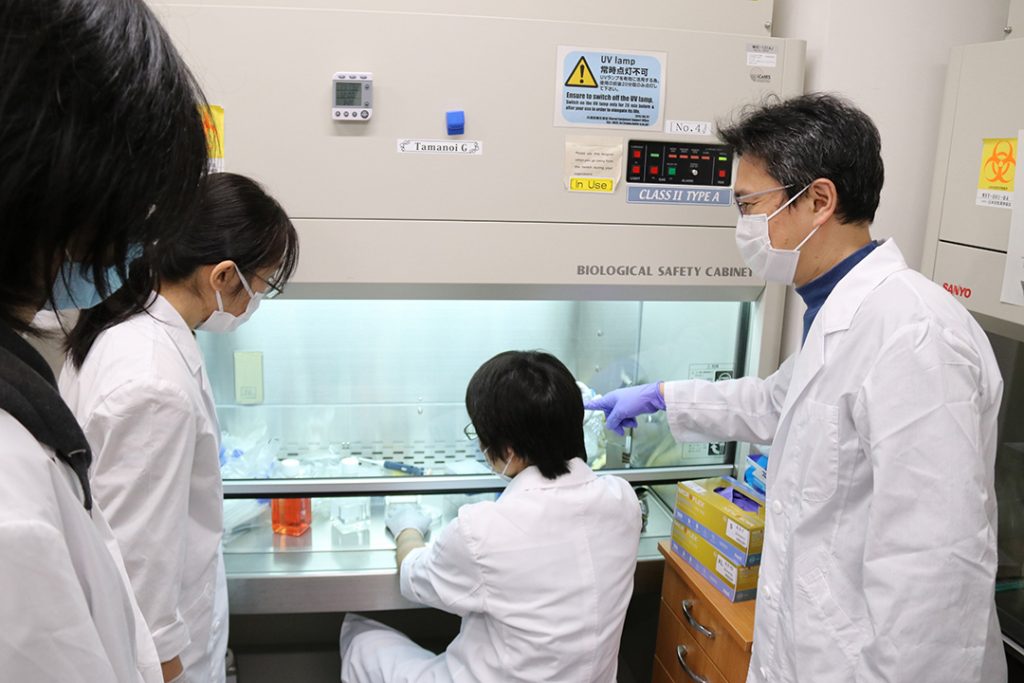
iCeMS was certified as one of the World Premier International Research Center Initiative (WPI) Academy institutes and reached a major turning point in 2017. I hope that in the future, the iCeMS Analysis Center will be able to gain enough budget so that researchers will be able to spend more of their own research funds on conducting their actual experiments not on the facility charges. In particular, I wish to purchase the latest equipment and advance interdisciplinary research using such equipment.
Although it is not common in Japan, overseas research institutions often accept short-term visitors (eg, one- to two-week visits or sabbatical leaves), and top-notch laboratories see frequent replacement of their faculty members. These laboratories are equipped with excellent technical staff members with rich expertise and experience to whom visiting and new researchers can turn for assistance. I am interested in building a technical platform that provides this infrastructure and supports cutting-edge research.
Generally, Japanese higher education institutions, particularly the seven major national (former imperial) universities, are at least on a par with, if not superior to, overseas counterparts with respect to the quality of experimental equipment. At most European institutions, experimental equipment procured by one laboratory is available for use by others. In my experience, many of these instruments are not managed appropriately. During my time in the UK, I occasionally noticed the absence of routine maintenance programs and minor mechanical issues that were often left unrepaired until they became major ones.
In contrast, Japan is known for its meticulous orderliness and quality control. Taking advantage of our cultural heritage, I believe iCeMS will be a major hub for technological innovations and breakthroughs. I envision that our institute will one day enjoy the reputation of a research destination to which people say, “If you want to accelerate your research, go to iCeMS.” Kyoto attracts countless tourists domestically and internationally. But you may feel a little uneasy about doing research from abroad due to differences in everyday language and culture. I hope that iCeMS will also attract researchers and serve their experimental needs. It will be great if people see that iCeMS’ doors are open to all, especially talented junior researchers.
A Portrait of Dr Homma’s Day at Work
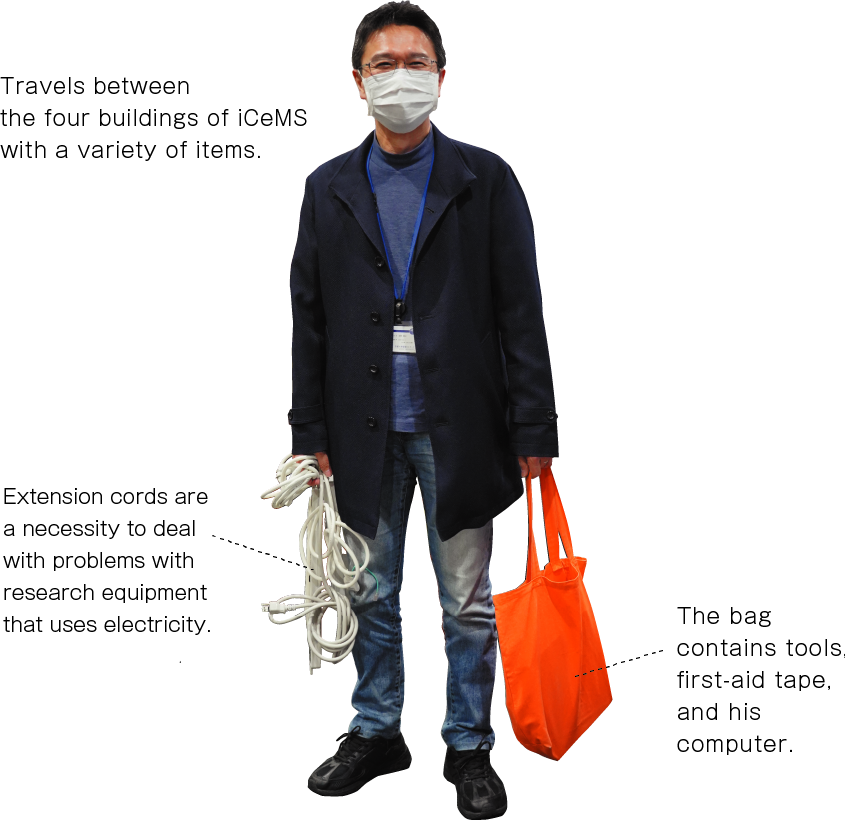
- 9:30
- Arrival at office, email checking
After arriving at the iCeMS Research Building first thing in the morning, I check emails and postal mail for any tasks that require immediate action.
- 10:50
- On-site troubleshooting
I received a phone call for help with a problem regarding the iCeMS Main Building equipment. I hurried over and helped restore the machine to its full capability.
- 12:00
- Submitting applications
I submitted an application for an external grant.
- 13:30
- Dealing with an inquiry on the use of equipment
During my lunchtime, I received a call from an external scientist who inquired about the possibility of conducting experiments at iCeMS. The planned experiment was not feasible with our equipment. I suggested the scientist call a different department that could suit his needs.
- 14:00
- Instructing a researcher on the use of the shared laboratory
I explained to a new researcher use of the shared laboratory and provided information on health and safety precautions in the iCeMS Research Building
- 15:00
- Maintenance operation completed
I was informed by the service technician that the maintenance operation was complete. I was briefed on the current status of the instrument and checked its condition together with the technician.
- 15:30
- Technical support for a doctoral researcher
A student having trouble with data collection came to me for help, and I proposed several possible solutions to the problem.
- 16:00
- Collecting information on a new product
I participated in an online product presentation seminar hosted by the distributor of a newly released experimental instrument.
- 19:00
- End-of-day disinfection
I received a call from the Main Building that the use of the facility was terminated for the day, and I went over to disinfect the site.
- 20:00
- Leaving the office